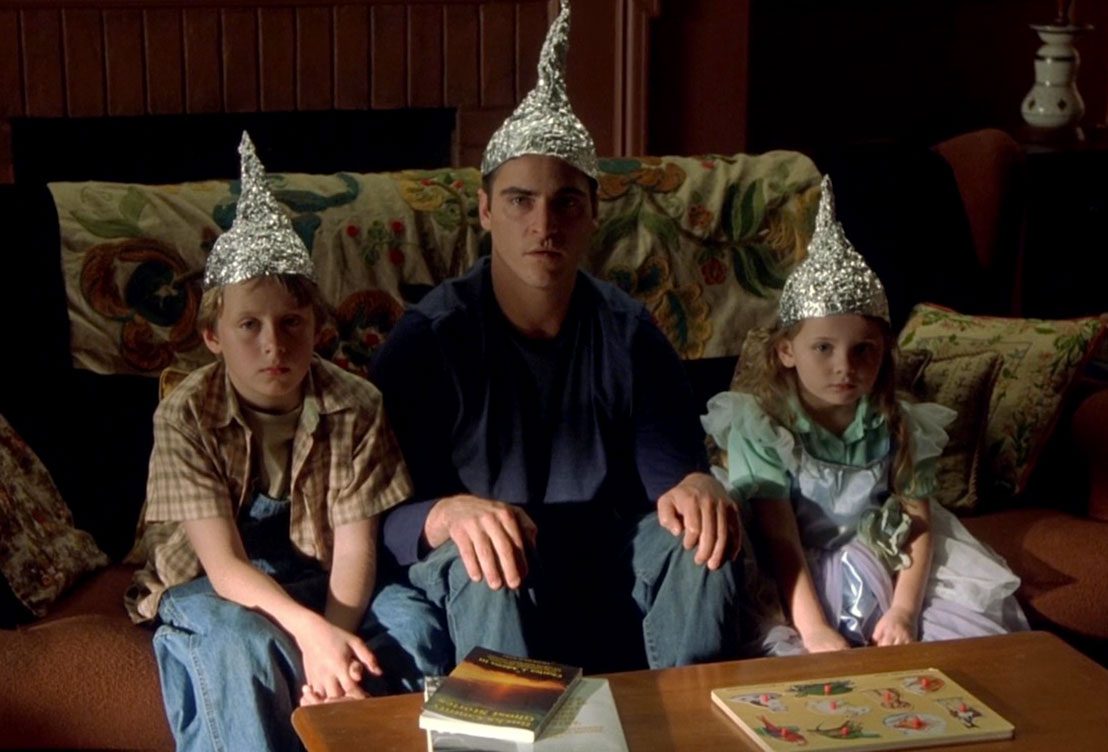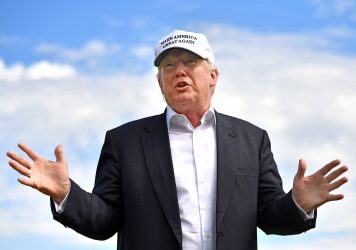
On the surface, it may appear as if Denis Villeneuve’s wistful sci-fi drama Arrival exists as the perfect “antidote” to the traumatic, tumultuous era ushered in by the election of Donald J Trump. It’s a film about communication and understanding outsiders, and surely it’s just what the world needs at a time when its greatest democracy has ceded power to a divisive xenophobe.
Arrival, with its handwringing worthiness and easy answers, certainly meets these criteria as escapist balm for the masses, but this analysis ignores the fact that M Night Shyamalan’s 2002 film Signs is not just a superior film about alien invasion (funnier, darker, more cinematic), but also a stronger allegory for the apocalyptic fever that has gripped America and, by extension, the world.
Most obviously, Signs is a film about localism versus globalisation. The action centres on an isolated Pennsylvanian farmstead where Mel Gibson’s character Graham attempts to cosset his children – grieving after the death of their mother – from an outside world he sees as rife with uncontrollable forces. This parochial sense of dread is amplified when aliens arrive, leaving crop circles at Graham’s door. It becomes greater still as his family consumes 24-hour news media broadcasting hysteria and misinformation.
Swap Graham for a Trump voter, the aliens for non-white immigrants and the media for… well, keep the latter and add a dose of Facebook and Twitter and you get the idea. More interesting still is the fact that Pennsylvania was one of the key battleground states in which Trump unexpectedly won by appealing to disaffected white Americans.
The few scenes in Signs that stray outside the family farm only go as far as the nearby town and its immediate environs. Here, Shyamalan creates the sense of a close-knit community that is largely untouched by globalisation, but is also fearful of what lurks beyond its perimeters. Graham’s character is a Christian pastor, representing the evangelical strand of American culture that has long backed Republicanism, while the biggest (human) pariah in the story is a well-spoken town local played in a cameo by Shyamalan himself. This is the educated, ethnically diverse ‘liberal elite’ versus salt-of-the-earth white America.
Whether Shyamalan intended for Signs to be this ripe with political meaning is irrelevant. By telling the story on these terms, it lays bare attitudes and social dynamics that have long been present in America and that expressed themselves with devastating force on 8 November 2016.
The film also offers an aptly satirical view of how humans respond when they can no longer comprehend the world. Graham and his son Morgan, played by Rory Culkin, squabble over the reliability of a book about UFOs that appears to predict the alien attack, while twice in quick succession we hear the line, “Everything people have written about in science books is going to change”.
In a world in which pundits and pollsters are now largely discredited and Trump claims that climate change is a hoax invented by the Chinese, the tin foil hat Morgan wears to stop the aliens from reading his mind doesn’t seem all that ridiculous. But Signs is not just a treatise on post-truth America or fear of ‘the other’. It is also an intensely personal story about a broken man who has lost his faith in God and the meaning of life. A superbly tense third act, in which the family barricade themselves in their home as the aliens try to enter, sees Graham emerge from this purgatory and embrace hope once more.
As bleak as it seems right now, we must try to believe that the Trump story could yet have a similarly happy ending for the wider world, and humanity.
Published 17 Nov 2016

By Sam Adams
Steven Spielberg’s spy drama is an important reminder that being American is not a matter of where you were born but what you believe.

As the world is transformed into a sickening hellscape, the great and good of moviedom give their two cents.

Director Anthony Baxter takes an ineffectual swipe at potential world leader and heartless golf course builder, The Donald.